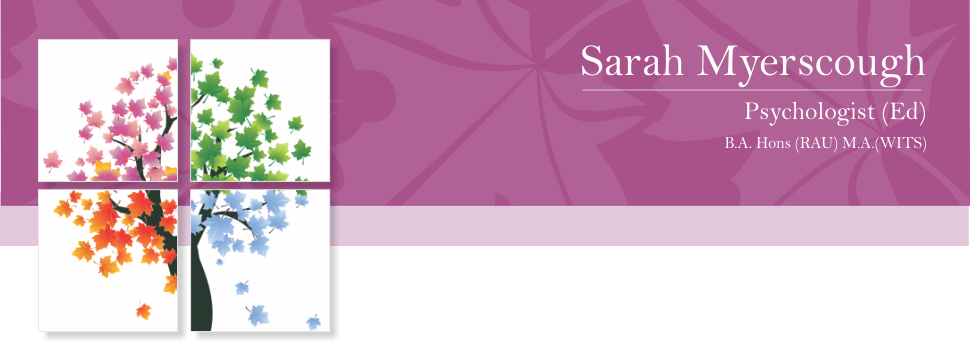Questions and Answers
Below are some commonly asked questions about therapy, if you have a question that is not answered below, feel free to contact me
How do I know if I or my child/adolescent needs therapy?
If you are faced with a difficult life challenge, overwhelming feelings of sadness, anxiety or anger, unexpected illness, relationship problems, or are making a transition in your life and need some guidance, you may want to talk with a psychologist. If your child/adolescent is struggling emotionally, acting out, struggling at school or socially they may benefit from play therapy or therapy.
What can I expect from therapy?
A safe and compassionate environment filled with respect and empathy. I would try to provide perspectives to illuminate persistent patterns and negative feelings as well as strategies and practical guidance for enacting positive change. Therapy is not a passive process; in order for it to be effective you, as the client, will need to be an active participant in the process both during and between sessions.
Every therapy session is unique, and varies according to each individual and their specific goals in therapy. You would have a chance to talk things out fully until your feelings are relieved or the problems clarify. However, undertaking therapy can be a difficult process as you work through the difficulties in your life. You may experience sadness, anger, and other negative feelings as you start processing these difficulties. It is important to keep in mind the long term benefits of therapy which may include a change in mood for example: lifting of depression, sadness, anxiety or fear. Relationships and coping skills may improve greatly. Goals and values may become clearer. Healing and forgiveness may begin to surface. There may be an increase in general life satisfaction and a sense of growth in may different areas of life for example: relational, social, spiritual, school or work.
How many sessions will I need?
Therapy can be short-term, focusing on a specific issue, or longer-term, addressing more complex issues or ongoing personal growth. After a few initial evaluation sessions (2 to 3), we will together work out how many sessions may be required.
How long is a therapy session?
A session is 50 minutes for adults, 45 minutes for adolescents/children, unless otherwise agreed upon.
How often does therapy take place?
Sessions are scheduled once a week for 50 minutes for adults and 45 minutes for children. During times of crisis or when additional support is needed the number of sessions could be increased to twice a week.
What are the fees for therapy?
Fees are charged per session and are within medical aid rates. Clients will receive an invoice after their session and would need to settle their invoice with a cash payment or EFT within 48 hours. This therapy practice is contracted out of medical aid therefore clients would need to claim themselves directly from their medical aids. For clients not on medical aid or clients who would find this fee difficult, I am able to negotiate a reduced fee or payment plan. Please note sessions not cancelled with 24 hours will be charged for in full.
What if I feel like we (therapist and client) don't relate to each other?
Therapy is ultimately about the relationship between the client and the therapist. This needs to be strong, open, supportive, comfortable and, for the client, a relationship that they trust. During the first few sessions, we will both be feeling out if this relationship is going to work. If not, I would refer you to another therapist.
How does Play therapy work?
If you would like your child to undergo play therapy we would firstly schedule a parent intake session. In this session we will explore the difficulties and the history of the child. We will together decide what are the best next steps. These could include
- Parental guidance, where together we will think through and work on strategies to help your child which you will implement at home.
- Family therapy where the whole family comes in for therapy to discuss the difficulties taking place at home.
- Individual Play therapy for the child. As children struggle to talk about their feelings, during play therapy, they are given the opportunity to play out and talk about their feelings with various specifically chosen toys and art materials. I interpret their play and help them make sense of their feelings that they are playing and talking about. I conduct 3 to 4 evaluative play therapy sessions with the child. A parent feedback session will then take place where I will give feedback to you, the parent, as to what I have noticed during the sessions. We will then, together, decide on the next steps.
What is a psychoeducational assessment?
Psychoeducational assessments measure a child's cognitive and academic strengths and limitations. They also include an emotional assessment of the child. Children are generally referred for a psychoeducational assessment when they are having difficulties at school or when they are performing very well at school and may be getting bored.
A psychoeducational assessment can help identify attention, concentration or memory difficulties, learning problems, behavioural and emotional problems, delayed intellectual development or an uneven development of skills. All of these can limit a child's potential and when identified appropriate recommendations and procedures can be put in place to help assist the child reach their full potential.
A full psycho educational assessment includes:
- A parent intake session where a full history of the child's development, schooling, family and other relationships will be explored.
- One to two assessment sessions of two to three hours each. These sessions will take place with the child and the therapist and usually take place in the morning when the child will perform at their best. The child will participate in a variety of activities and tests. The child generally enjoys these assessment times as the therapist makes them as fun and engaging as possible to get the best possible performance from the child.
- The therapist will also ask the teachers and school to complete some questionnaires as well as the parents.
- The therapist then collates all the various information and complies a report with recommendations.
- A second parent session is scheduled with the therapist where the findings and recommendations are presented and together the parents and therapist think through the next steps to assist the child.








